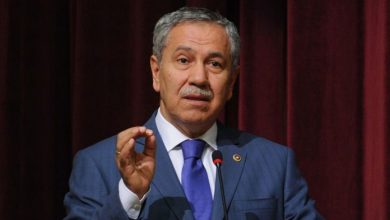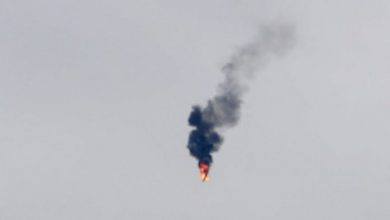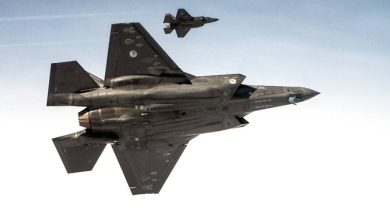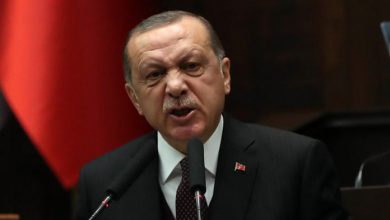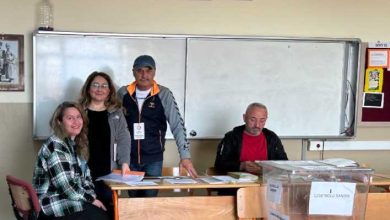A decoder of Erdoğan’s newspeak
Turkey’s legitimate security concerns are mainly the result of the conflicts that Erdoğan needs to maintain his grip on power and shield him coup attempts.
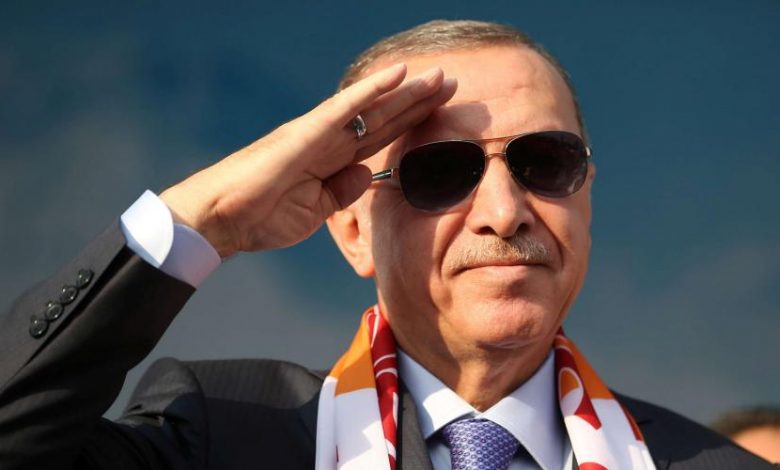
President Recep Tayyip Erdoğan, the Turks’ beloved grand helmsman, the commander-in-chief of regional jihadists, the worshipped guardian of Muslims worldwide, does not speak any other language apart from broken Turkish. By the way, just like millions of Turks who therefore easily understand him. But next to these insiders there is everyone else, especially those abroad, who need a dictionary to grasp the meaning of his newspeak. So, let’s start with some his oft-repeated concepts.
Terrorist: Any person, either local or foreign national, who challenges Erdoğan’s wisdom on any aspect of life. The catch-all word “terrorist” encompasses so many denotations that it is easy to get lost. For instance, when the lira falls against the dollar, his people talk about “dollar terror”. When food wholesalers raise prices, Erdoğan decries the “fruit and vegetable terror”. But the word terrorist is most commonly applied to Kurds, wherever they live. They are seen as posing an existential threat to anything Turkish. The opposition agrees. Anyone can one day become Erdoğan’s terrorist.
Legitimate security concerns: Another catch-all term; a modern variant of the famous paranoid idiom: “Turks have no friends but Turks”. The Republic of Turkey was thus built on the ashes of the multi-ethnic, multi-religious, multi-lingual Ottoman Empire whose rich diversity was systematically destroyed. The ideal of the ethnically, religiously and linguistically homogeneous Turkish nation is still a work in progress a century later. The ethno-religious cleansing has been largely achieved through the annihilation of non-Muslim populations and the imposition of Turkish as the single language. Alevis and Kurds who do not belong to the Sunni Turkish majority have yet to be homogenised.
Due to its history of ethno-religious cleansing and its present attempts to forcibly homogenise the remaining elements, Turkey is naturally haunted by security concerns, as none of the atrocities, genocides, pogroms, mass killings and deportations has been subject to proper accountability and justice. In other words, it is to be expected that Turkey feels insecure, sitting on fragile foundations made of blood and tears.
Still, are the threats real? Westerners, and NATO officials in particular, are quick to buy into Turkey’s narrative of legitimate security concerns. It is a very convenient fig leaf for not doing anything, not even to condemn Turkey’s endless coercive actions and open aggression.
This happens despite the fact that Western officials know very well the irrelevance of these claims. There is not a single country in the world that is directly or indirectly threatening the security of NATO-member Turkey. Yet NATO Secretary General Jens Stoltenberg, who knows perfectly well about these non-threats, keeps referring to Turkey’s legitimate security concerns.
Turkey’s legitimate security concerns are mainly the result of the conflicts that Erdoğan needs to maintain his grip on power and shield him coup attempts. It transpires that Turkey’s purchase of Russian S-400 air defence missiles was to protect the presidential palace.
Safe zone: Also known by the sinister euphemism “peace corridor”, the safe zone is a by-product of Turkey’s security concerns and the main reason for its present armed assault on Syrian Kurdistan and the Kurdish-led Syrian Democratic Forces (SDF). Promoted by Erdoğan himself who even showed a map of it to the UN General Assembly in September, the zone is no more than a 21st century version of the Roman Empire’s fortified boundaries (limes). Used since by all Eurasian empires, in particular the Byzantine and Ottoman, it consists of creating a buffer zone composed of armed groups of any ethnicity, paid and sustained by the central authority, who are free to pester the other side of the border and ensure a certain stability in volatile border regions. Erdoğan intends to purge this corridor of Kurds and other unwanted groups and replace them with forcibly relocated Syrian refugees, paid jihadists and their families.
The Syrian National Army: The Syrian National Army consists of about 110,000 irregulars who formerly belonged to a range of jihadist groups, including Islamic State (ISIS). They are allowed to pillage, take hostages, bribe, kill and terrorise the local population in the already occupied parts of the safe zone in order to make the inhabitants flee. This irregular army is the backbone of Turkish military operations in Syria.
The fight against ISIS: A Turkish fable. Former U.S. special envoy to the region Brett McGurk confirms what is known to all intelligence services around the world:
“Tel Abyad, a Syrian border town, was the main supply route for ISIS from 6/2014-6/2015 when weapons, explosives, and fighters flowed freely from Turkey to Raqqa and into Iraq. Turkey refused repeated and detailed requests to seal its side of the border with U.S. help and assistance.
“Turkey also during this period refused to permit the U.S. military to fly from Incirlik airbase to strike ISIS positions, even as ISIS fighters poured into Syria from Turkey …
“In June 2015, after no action from Turkey and the border still wide open, we enabled SDF fighters to clear Tel Abyad. After the battle, Turkey sealed the border (from the SDF not ISIS) and built a wall …
“After the loss of Tel Abyad, ISIS organised its foreign fighters in the town of Manbij and continued planning major attacks in Europe. For more than six months, we worked with Turkey and opposition groups it approved to move from its areas west-to-east to seize Manbij. These fighters received more support than the SDF – but they could not advance & some gave U.S.-provided equipment to al Qaeda groups in NW Syria.
“The threat warnings proved true in Nov 2016 when an ISIS combat team travelled from Manbij through Turkey and into Paris, killing 131 people. This followed the ISIS suicide bombings at Brussels airport, also by a team that travelled from Syria through Turkey …
“After the Paris attacks and with threats growing, we enabled the SDF over Turkey’s objection to seize Manbij in a costly multi-month battle. Since then, there were no further directed attacks into Europe.”
So, today, with the main sponsor of ISIS physically returning to the region, the risks are high that thousands of jailed ISIS fighters held by the SDF are set free and the thousands of jihadists under the Turkish umbrella in Idlib and Syrian Kurdistan will be free to commit acts of terror in the region and abroad.
Last not least, the elimination of ISIS leader Abu Bakr al-Baghdadi in a Syrian village next to the Turkish border speaks volumes about Ankara’s ties with the extreme jihadist group.
The fight against terror: As a consequence of the previous sleight of hand, Turkey’s fight against terror means nothing more than the eradication of Kurds, who are simply considered as terrorists thus prone to all sorts of ill treatment. The international community has been slow to decipher this trick, but now starts to see the Turkish assault on Syrian Kurdistan as ethnic cleansing. As for Turkey’s Kurds, the same international community remains largely silent, tacitly approving the ongoing and widespread injustice and abuse, again in the name of the “fight against terror”.
Colonialism and imperialism: Finally, colonialism and imperialism in Erdoğan’s lexicon are concepts that apply to any nation, in particular Western nations, but never to Turkey, even though it is busy trying to remodel territory it occupies in Cyprus and Syria by typical colonial and imperial means.
Source: Ahval
